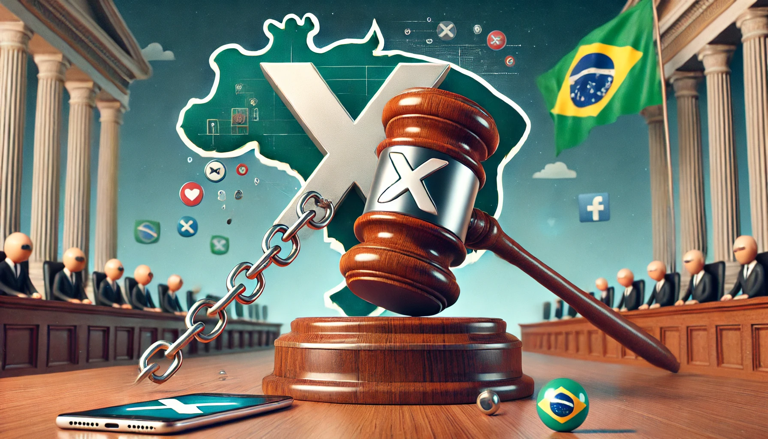After a heated standoff with the Brazilian Supreme Court, Elon Musk’s social media platform X has finally regained its operating rights in Brazil. The platform had been fully banned since August 30 due to its persistent refusal to comply with court orders. After more than a month of deadlock, X eventually capitulated, paying a hefty fine of 28.6 million reais (around $5 million) and agreeing to block multiple accounts flagged by the Brazilian government for spreading misinformation.

The root of this legal conflict lies in Brazil’s strict internet regulations. According to the law, social platforms are not only responsible for user-generated content but are also required to take action against fake news and online crimes at the government’s request. Since Elon Musk acquired X (formerly Twitter) in 2022, he has repeatedly voiced his opposition to content regulation, particularly when it comes to demands from the Brazilian courts. Earlier this year, Musk even shut down X’s office in Brazil and laid off all its employees, further intensifying the standoff.
While Musk initially mocked the court’s decision and refused to comply, the situation escalated as X began losing its more than 20 million active users in Brazil. Eventually, the platform had no choice but to comply with Brazilian law. Interestingly, during the process of paying the fine, X accidentally sent the money to the wrong bank account, further delaying the resolution.
During the ban, although the Brazilian courts initially ordered Apple and Google to remove X from their app stores, the court later softened its stance and allowed the app to remain available. However, since the platform was effectively banned in the country, users could only access it through VPNs, and those caught violating the ban faced fines of up to $10,000 per use.
The unblocking of X is welcome news for the millions of Brazilian users, but the controversy surrounding the platform’s content policies extends beyond Brazil. X has also faced significant criticism worldwide, especially in Europe, where the European Union is considering taking further legal action, potentially leading to sanctions against the platform.
As X resumes operations in Brazil, this case highlights the growing complexities for global tech companies dealing with content regulation across different countries. For Musk and his company, Brazil’s experience may just be the tip of the iceberg when it comes to navigating international regulatory challenges.